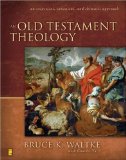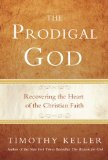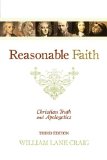A few weeks back I posted some thoughts on the Introduction of Stephen Nichols’ book, Jesus Made in America, published this year by IVP. To be honset, I wish I were a full-time blogger, because I feel like this book deserves a post for every chapter. In fact, I hope to do a multi-part interaction with it someday, possibly in the fall. But of course, don’t hold me to that.
Nichols does a terrific job combining careful insight, painful observations (painful for someone in the midst of evangelicalism) with a healthy dose of humor. Throughout the book are fascinating accounts and snapshots of how Jesus has been used (and abused) throughout American history in a more-or-less chronological arrangement, from “the Puritans to The Passion of the Christ“, as the subtitle states. Nichols sets out to “unveil these pictures of Jesus in American evangelicalism, to tell the story of his American evangelical incarnations” (p13) as well as “to raise signification questions about the state of Christology in American evangelicalism” (p17). Even with my disagreements (see below), I have to say: Nichols’ book is a success.

The Puritans stand as Nichols’ best form of American Christology, the standard to which the rest of American evangelicalism is measured. Through the words of Edward Taylor and Jonathan Edwards, Nichols, rightly, shows that the Puritans were not simply a boring bunch (though I admit “boring” is subjectively defined), who totally confined religion to the intellect and rule abiding. In fact, they loved the arts and poetry. As much as they taught the deeper points on theology, particularly Christology, in their sermons, they were also capable of writing words like: “Here [Christ] comes to give us the caresses of his love, and lay us in his bosom and embraces” (p31-32). Update the language a bit, and you got yourself a Jesus Is My Boyfriend worship tune! Thus, the Puritans were not simply intellectuals, but passionate worshippers of God (contrary to popular belief).
He does have a criticism, however, and that is “Given their dexterity in articulating both an orthodox, creedal Christology and a heartfelt piety, they didn’t always follow through with Christlike action” (p40-41). Mind you, I think he largely lets the Puritans off the hook here, as he spends far more time praising them than critiquing them on this very important point. I have some thoughts as to why this is so, but I’ll save that for a later post.
What follows is essentially a lesson in how we tend to “create a Jesus in our own image.” I remember reading Albert Schweitzer’s comment made over 100 years ago, that the liberal scholars of his day were “looking for the historical Jesus down the well of history, only to see their own reflection.” Nichols shows us how the early founders of America (specifically Ben Franklin, John Adams and especially Thomas Jefferson) were concerned not with a divine Jesus (hence Jefferson‘s cut & paste work on the Gospels). ). “What mattered most to Jefferson, especially for the new republic, was that Jesus was a virtuous man” (p57). These founding fathers help pave the way for the virtuous and moral Jesus, rather than the Jesus who is God and died for the sins of the world (p72-73).
In the 19th century, The frontier Jesus suited the non-educated men and women of the frontier, who did not want to bother with a God-man, but one who can be understood through personal experience and simple stories. The Victorian Jesus introduced the more feminine Jesus, as seen in John Sartain’s picture “of the Victorian jesus, gentle, meek and mild, with flowing hair and high cheekbones, and a softness that only a womanly Savior can muster” (p84). Thus, “the prevailing contribution of the nineteenth century to American Christology is that Jesus…became captive to ideology” (p95).
Chapter 4 deals with the battle between early 20th century liberalism (such as Harry Emerson Fosdick) and orthodoxy (see J Gresham Machen). Nichols’ quotes Machen’s words, “Liberalism regards him as an Example and Guide; Christianity as a Saviour: liberalism makes Him an example for faith; Christianity, the object of faith” (p117). I think Nichols ought to have pointed out that Jesus is in fact an example for us to follow (1 Peter 2:21, Phil 2:1-11), but his main critique is correct: liberal Christianity has reduced Jesus to an example and removed His rightful place as God in the flesh and Savior of the world. The fallout of this period, though, is that “for contemporary American evangelicals… the tug of war between devotion to Christ, on the one hand, over precise thinking about Christ, on the other, often goes in the direction of devotion” (p120).
In more recent years (chapters 5-8), Nichols gives us an honest (and sometimes painful) look at Christianity. Here, we see the rise of “Jesus Is My Boyfriend” music (whoever invented that term is my hero, by the way), where “like a good boyfriend, Jesus shows up at the right moment, says the right thing and knows how to hug” (p140). While I felt that his dealing with movies about Jesus (in chapter 6) is his weakest of the book, he makes a good observation: that these movies tend to appeal to emotion and personal experience more than anything else.
Chapter 7 deals with the commercialization of Jesus and Christianity, whether through WWJD bracelets, t-shirts or Jesus action figures. Perhaps his greatest point is during his discussion of The Shepherd’s Guide: The Christians’ Choice of Yellow Pages, which is a book for Christians to help them find other Christians in various types of businesses. Nichols states, “The Shepherd’s Guide, not to mention CCM and even the union of Christian insurance agents, creates an insular world for Christians” (p185). Christians, ostensibly in an effort to witness by wearing Christian t-shirts or buying only from Christian businesses, have isolated themselves from the rest of the world, who tend to laugh at us more than weep in repentance. It makes me ask: what purpose do these products actually serve?
Chapter 8 deals with Jesus in American politics. This chapter, I would imagine, may have been the hardest to write, simply because there’s so much to deal with. He’s weakest when discussing the right wing portrayal of Jesus, largely because (in my opinion) there is less about Jesus and more about Christianity here. With that said, it’s well known that the right wing of American politics has often appealed to Christianity to support its agenda. On the left wing, we see men such as Jim Wallis (which is spelled correctly and incorrectly- with the homophonical “Wallace”- multiple times in the same paragraph), who use the stories of the Gospels to show that Jesus cared primarily about helping the poor and the outcasts of society, which they claim lends support to the left wing cause. Ultimately, what happens is that we end up with a truncated Jesus (my term); a Jesus that does not take into account the whole of the Gospels.
There were a few points that stood out to me as particularly poignant from this book:
1. We haven’t been especially strong in letting the depth of the Gospels come out. Nichols warns us that “we need not shrink back from complexity” (p226). It’s true, we tend to keep Jesus limited to our experience (Jesus is my fishing buddy, etc) rather than allow the fullness of who He is (as seen in the Bible) impact us.
2. Interestingly, while we ignore (or fail to be impacted by) many of the stories about Jesus, we tend to “fill in the gaps.” Time and time again throughout this book, Nichols shows how Americans have simply not been comfortable with letting the Gospel stories to speak for themselves. We want to know what Jesus’ face looked like when He spoke to someone. We love to read Max Lucado stories, as he offers up imaginative stories that we do not find in the gospels (p78-79). The problem, however, is that these types of stories tend to provide the substance of the presentation of Jesus, rather than allowing the Bible itself to do so.
3. His treatment of “Jesus Is My Boyfriend” music is terrific. It’s often true, that you can take many Christian songs and substitute “Jesus” with “baby” and end up with a love song fit for a cheesy romance movie. Many would consider this harmless, but Nichols makes a great point: “Even lovesick teenagers on the shores of life or shaking like leaves need more than a hug from Jesus. Even they need to know that he is the God-man. If they don’t hear it in the songs, the locus theologicus of today, then where will they hear it?” (p145).
4. American Christianity, for the most part, does not care what the ancient creeds of the church say about Jesus. We think that we have come to the Bible with a blank slate and come away with a biblical portrayal of Jesus. We don’t need some dead guys who spoke Latin to tell us what to believe. The problem is that Christians who do not learn from Christians of history will be more susceptible to cultural influences of their day. Nichols shows this time and time again.
5. We need to go back and revisit our idea of who Jesus is. Do we have a truly well-rounded and biblical idea of Jesus? What episodes of Jesus’ life do we neglect at the expense of others? What aspects of Jesus’ character do we think about / pray about / sing about / preach about? What are we leaving out? Are we being conformed to Jesus’ image (Rom 8:29) or are we conforming Him to ours? I found myself asking these questions of myself over and over throughout the book.
To close, I really enjoyed this book. It’s one of the best books I’ve read in some time, and even where I disagree with Nichols (and I certainly do at points), I found myself conceding that he had a point to consider. If you are at all interested in Christianity and culture, American religious history or how evangelicalism has evolved over the last few hundred years, you ought to read this book.











